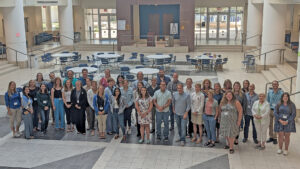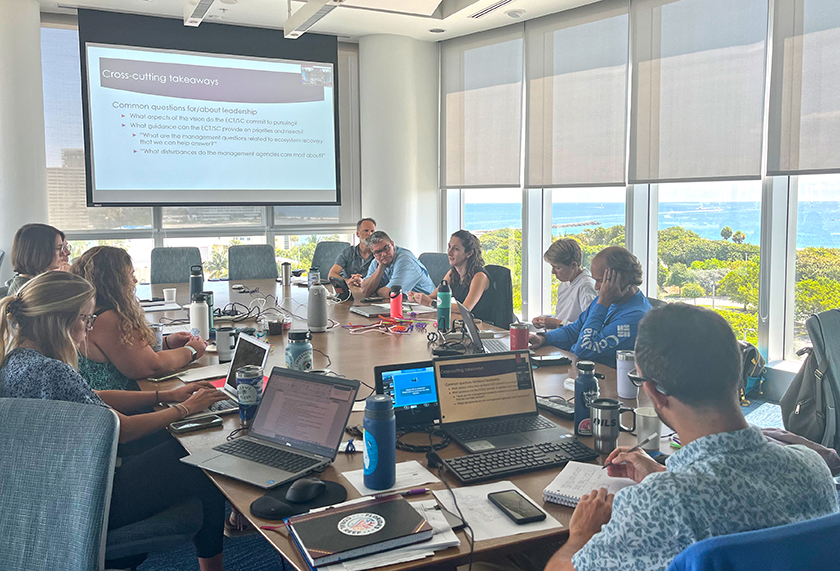
The highly collaborative, multi-organization response to stony coral tissue loss disease (SCTLD) in Florida has been a real success in coral reef conservation.
This May, Florida Sea Grant hosted the annual Coral Disease Technical Workshop, bringing together over 70 partners involved in Florida’s response to SCTLD with the goal of discussing how to build on the momentum and leverage the successes of the state’s disease response to benefit other coral reef conservation needs in Florida.
Workshop participants, which included representatives from state and federal agencies, academic institutions, and non-governmental organizations, worked towards a framework that can rapidly respond to acute disturbances, such as disease outbreak and hurricanes, while also supporting recovery of coral reefs to a more resilient, self-sustaining ecosystem. The annual workshop was a first step in the ‘evolution’ of the SCTLD Response towards what partners are now calling Florida’s Coral Reef Resilience Program.
The workshop was hosted by Florida Sea Grant at Nova Southeastern University/National Coral Reef Institute with funding from NOAA Coral Reef Conservation Program.
"We are excited to continue to serve in this role, supporting the collaborations that help make Florida a global leader in coral reef conservation and restoration."
Maurizio Martinelli

Members of the SCTLD Response Leadership Bodies met to discuss outcomes from the Technical Workshop and future directions of Florida’s Coral Reef Resilience Program. [credit: Samantha Cook (NSU/FDEP)]
Over the past six years, Florida Sea Grant has played a key coordination role in maintaining the cohesive collaborations of the SCTLD Response and will continue to do so with the new Resilience Program.
“We are excited to continue to serve in this role, supporting the collaborations that help make Florida a global leader in coral reef conservation and restoration,” says Maurizio Martinelli, Florida Coral Disease Response Coordinator at Florida Sea Grant. Since 2019, Martinelli has helped lead collaboration throughout Florida’s SCTLD Response, working closely with the response’s four ‘lead agencies’: FDEP, FWC, NOAA, and NPS, in addition to eight different response teams, each geared towards a different topic area (e.g., Research, Restoration, Data Management, etc.).